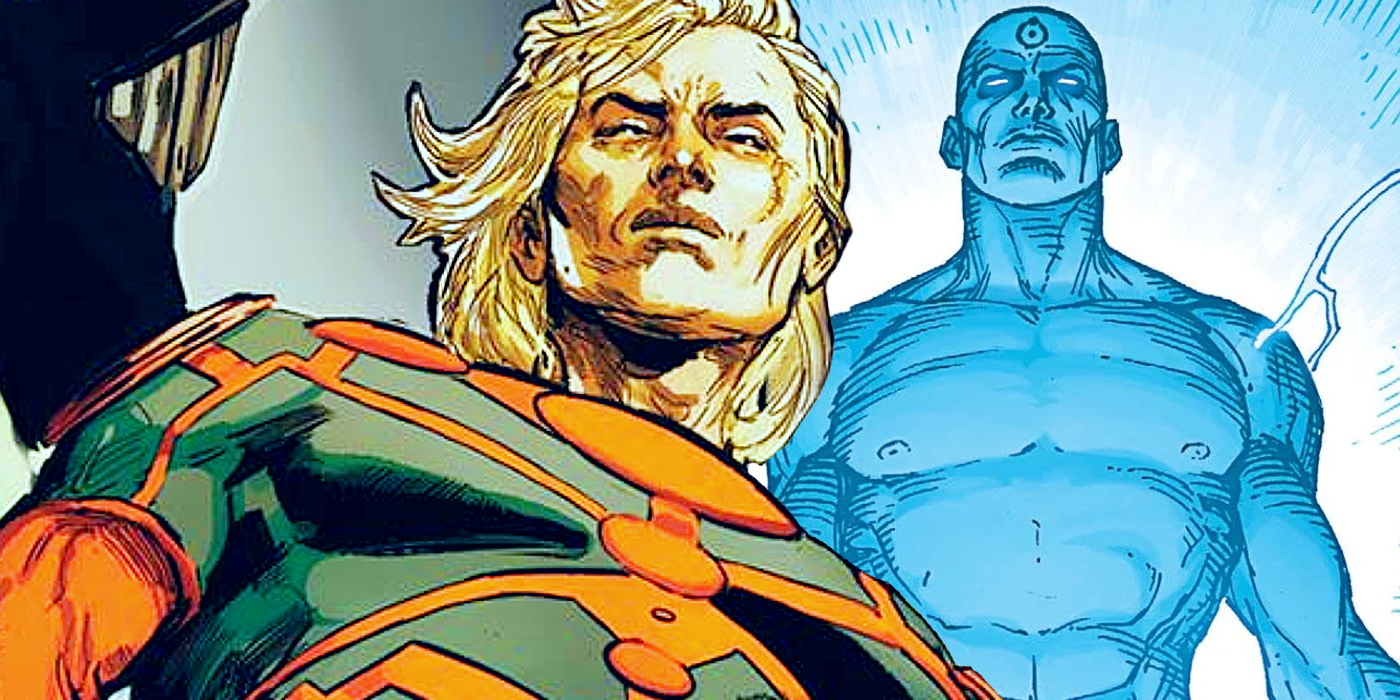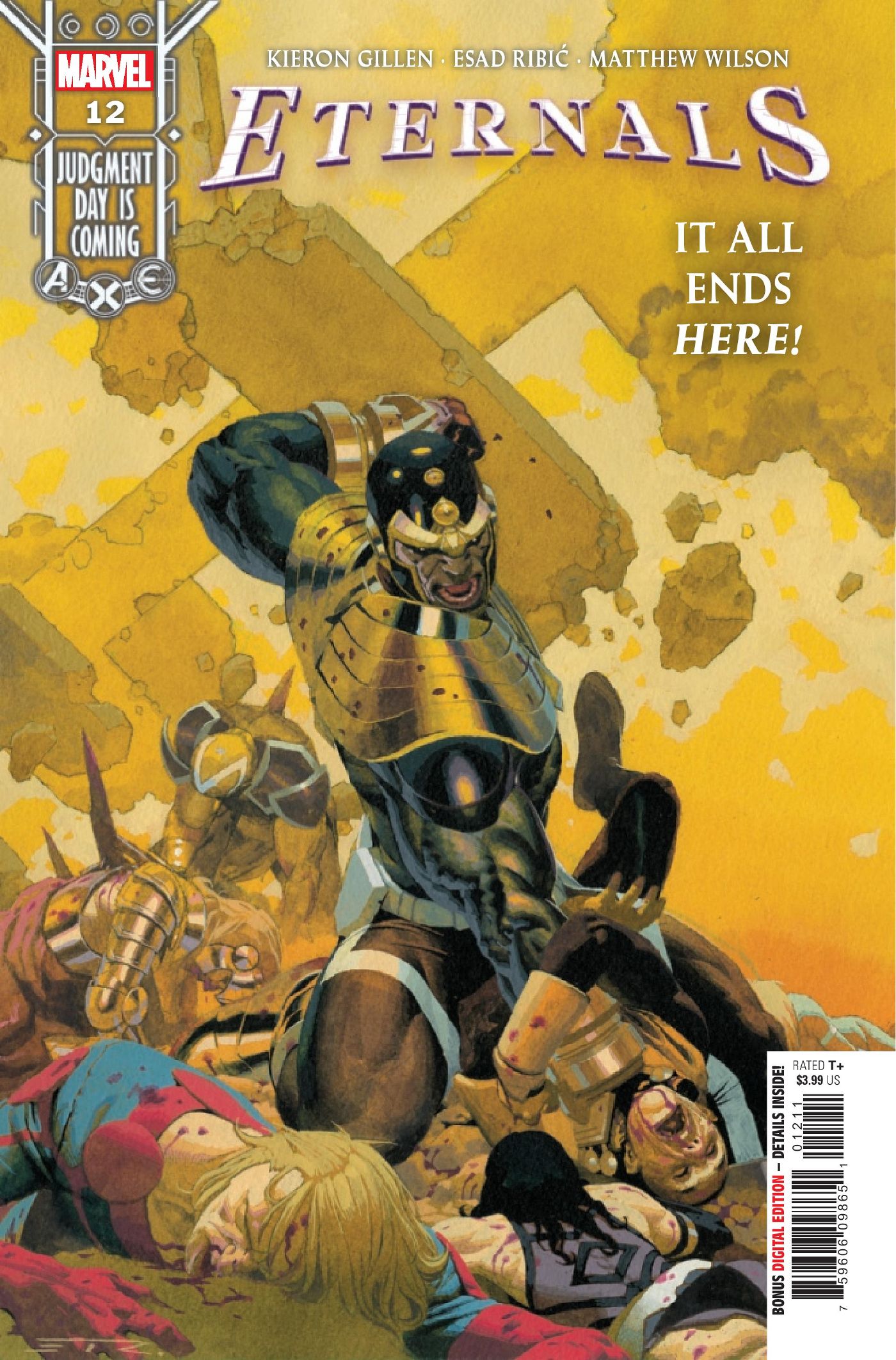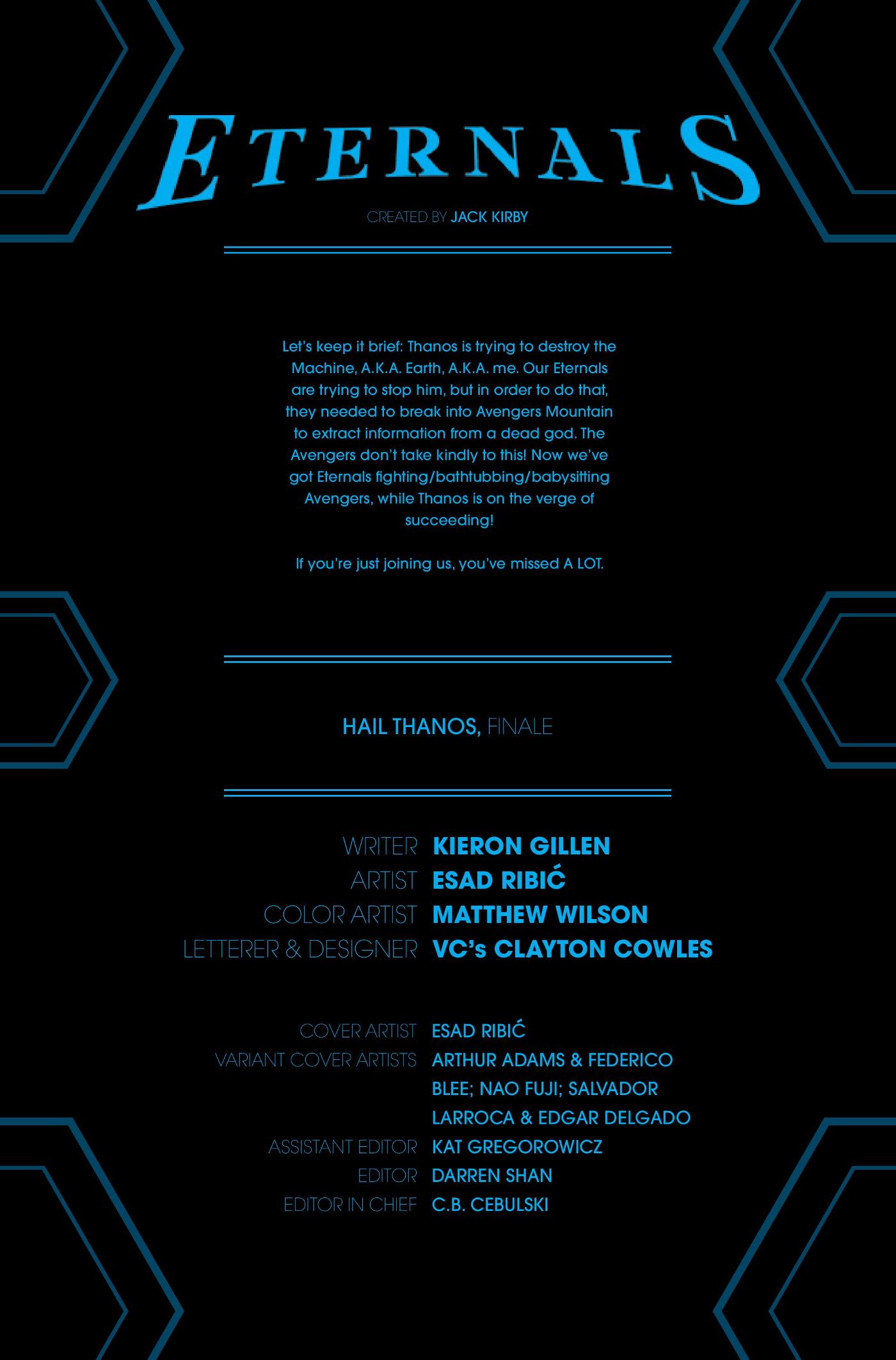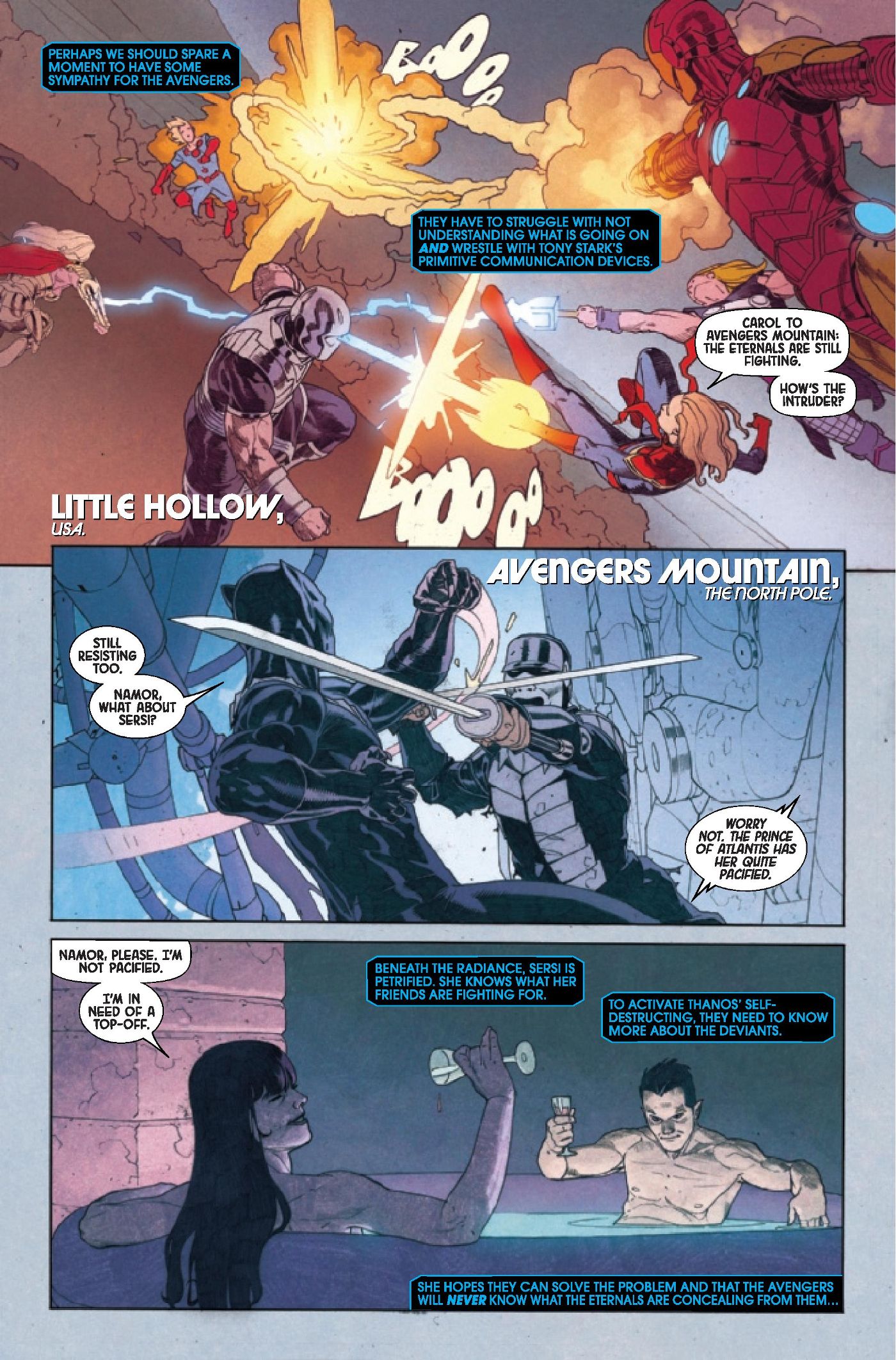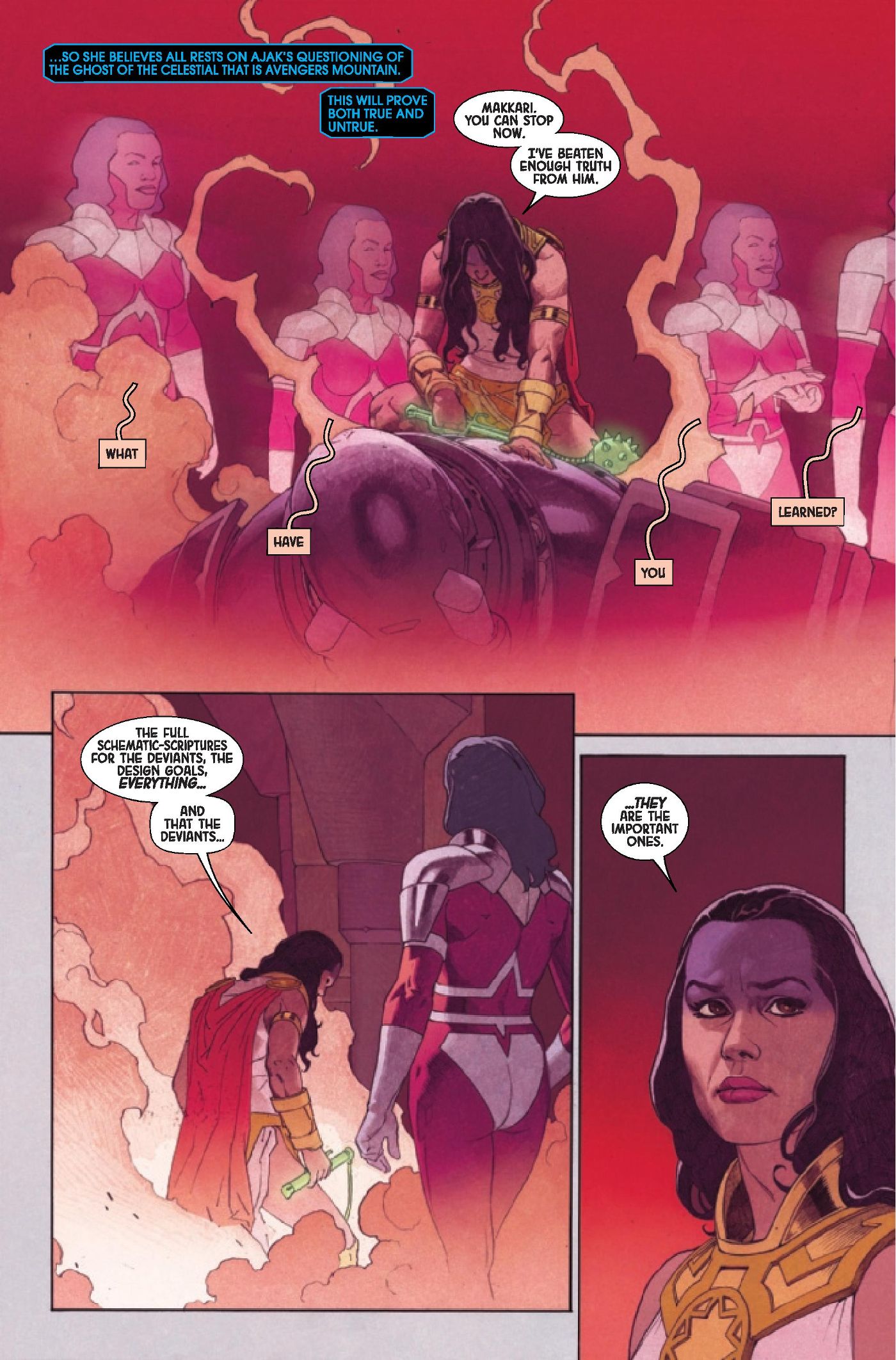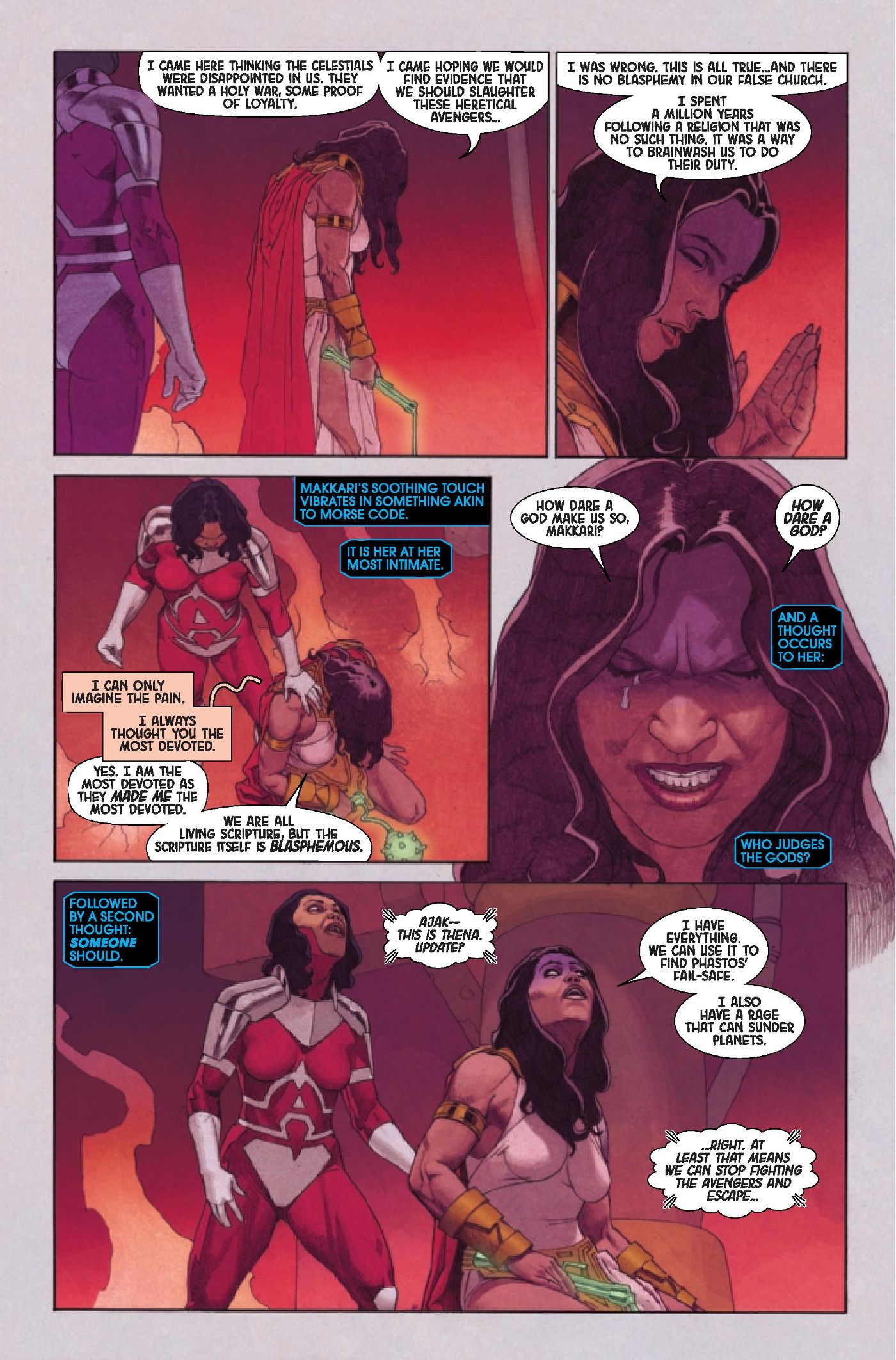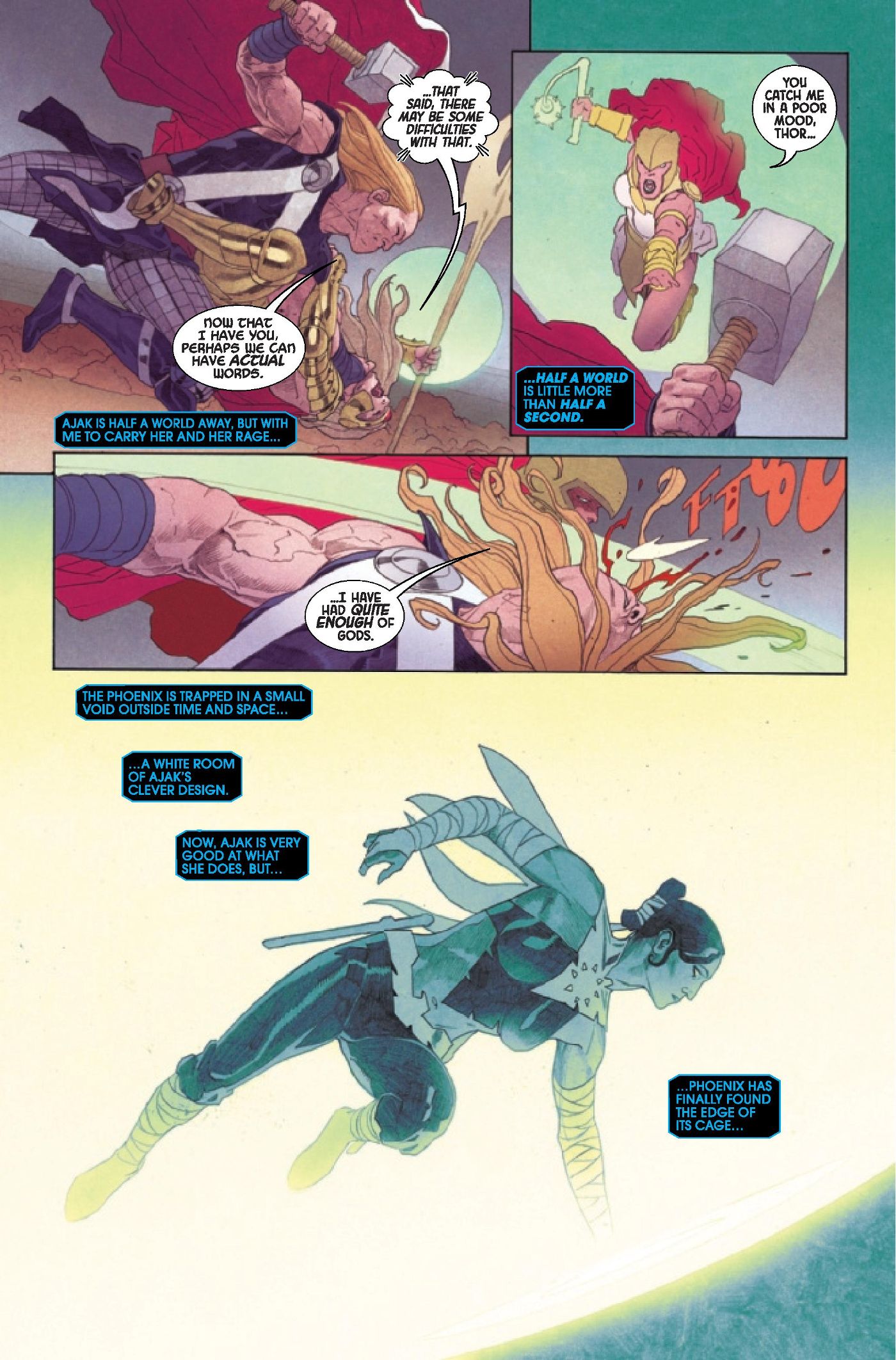Warning: contains a preview of Eternals #12!
Marvel Comics' Eternals just made the most famous line from Alan Moore and Dave Gibson's masterpiece, Watchmen, relevant again, giving it a whole new meaning by connecting it to the religious belief of the main characters of the comic book, the Eternals, and their relationship with their godlike creators, the Celestials.
In the critically-acclaimed DC Comics graphic novel Watchmen, the question "Who watches the watchmen?" often appears scrawled as graffiti in the background of the scenes. This is a reference to "Quis custodiet ipsos custodes?", a Latin phrase first found in the Satires, a collection of satirical poems by the Roman poet Juvenal. While the original meaning was in reference to marital fidelity, the phrase was then commonly used to refer to the problem of controlling the actions of persons in positions of power, and Alan Moore drew inspiration from this question for the title of the series' superhero deconstruction. In their quest for answers from their inscrutable gods, Marvel's Eternals have come to a very similar question: "Who judges the gods?"
In the Eternals ongoing series, written by Kieron Gillen with art by Esad Ribic and Matthew Wilson, the Eternals are struggling to find a way to kill the dreaded Thanos, a madman on a quest for slaughter and annihilation. Just like all Eternals, Thanos is made to be technically immortal, so a team has gone to find a way to kill him, looking for answers from the spirit of a dead Celestial, whose body is currently used by the Avengers as their base. Ajak, the most devout of the Eternals, questions the spirit, reaching a communion with one of her creators that she never thought possible. The answers she finds, however, completely shake her faith to the core, as seen in this preview for Eternals #12, shared by Marvel. Ajak learns that the Celestials engineered the Eternals to be religiously faithful only because they needed them to do their bidding. "We are all living scripture,", Ajak says, "but the scripture itself is blasphemous," going on to imply that bringing judgment to the gods could be the Eternals' role going forwards.
The question is very similar to one of the recurring themes in Watchmen. Moore and Gibson's seminal work is the most prominent deconstruction of the superhero genre and mythology. The story questions the right and ability of those with power to oversee those without, and now the Eternals are going through a similar epiphany: they discover that their own supreme leaders, the Celestials, are not benevolent protectors but rather have been manipulating them since the beginning. Ajak's realization is that, if the Eternals want to save themselves, they have to take their own fate into their hands and start holding their gods accountable.
However, this will be a tall order that requires the Eternals to totally alter their nature. Not only are the Celestials godlike being of incredible power, but Eternals are biologically unable to act against their masters' pre-programmed wishes. If they're going to take the fight to Marvel's cosmic overlords, the Eternals will need to make some major changes. Of course, that's if they can survive the upcoming clash with Thanos. Eternals may be embracing Watchmen's central theme with Ajak's discovery, but Thanos is a grand evil in the classic sense of superhero stories, and he'll need to be stripped of his powers before the Celestials can be confronted.
Eternals #12 will be available from Marvel Comics May 18.

